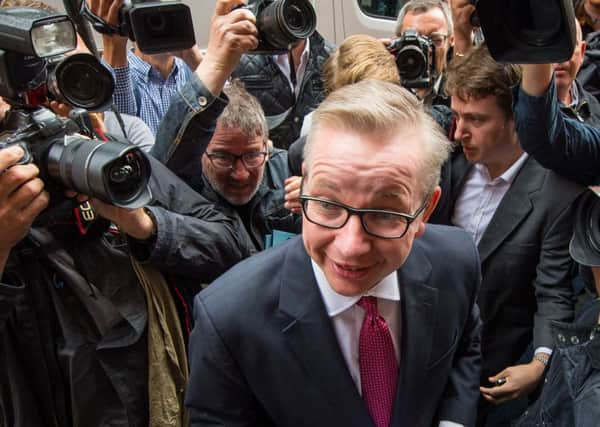Sir William Worsley: Will Michael Gove help unlock rural economy's potential?


There has already been a noticeable increase in the interest of political journalists in rural policy. Long may that continue because, with the noble exception of the The Yorkshire Post, many media outlets tend to relegate coverage and discussion of rural issues deep into the inside pages. There are big decisions to make which will shape the future of the rural economy and the management of our landscapes and communities, and they deserve high-profile debate.
Michael Gove brings a reputation as a reformer and a deep thinker and I am sure he brings that attitude to his new brief. Whether he will feel able to attack it with the vigour he has shown in previous roles will remain to be seen. The Government he serves is in a finely-balanced position and it is easy to see how this could lead to significant curtailed ambition. However my hope is for him to be as bold as he can be.
Advertisement
Hide AdAdvertisement
Hide AdBrexit demands that we think differently. The rural economy, and agriculture in particular, has been shaped by more than 40 years of regulation and funding that originates from the EU. It falls to the Secretary of State to deliver a post-Brexit vision for farming and the rural economy.
The Secretary of State must be in no doubt that a profitable farming sector is the foundation of a successful countryside. But there are challenges.
Profitability, even with support, is a distant prospect for many farmers across Yorkshire and the country. So, the first priority is devising a new economic strategy for agriculture. This must be focused on boosting productivity, increasing skills and improving land, buildings and equipment. A new strategy will be a key driver of change, and that reform is desperately needed. However this must be managed carefully.
Secondly, it is vital to recognise that successful, profitable farmers are the stewards of the landscape and the environment.
Advertisement
Hide AdAdvertisement
Hide AdWhat farmers do has shaped what our countryside looks like. Government can work with, and through, farmers to manage that landscape and together we can reap the rewards from a multi-billion-pound tourism industry, as well as improving health and well-being and mitigating climate change.
The big question is how to establish a new basis by which government works with farmers and landowners to deliver a range of things that society values, from woodland management to provision of habitat for wildlife and access.
Establishing new ways to fund the work that farmers do to manage the land is, in many ways, the key to a successful Brexit that works for the countryside.
Thirdly the Secretary of State is the countryside’s champion across Government. Through him and his team we can secure a commitment to investing in the wider rural economy – encouraging building of homes, digital infrastructure and other economic development initiatives. Broadband and mobile phone coverage in rural areas remains poor, and he can help to ensure that the promises made for so long finally come good. We also need new homes, and again rural areas can play their part.
Advertisement
Hide AdAdvertisement
Hide AdSmall, well-designed developments can be accommodated in villages, but they require careful thought and planning. Done well, they can help create vibrant communities. Done badly, they can cause huge damage.
Defra can also help to be a bridge, helping to establish a better connection and understanding between rural and urban areas. So many issues are the same, but they are seen differently and this brings distrust. Improving communication and understanding would help bridge the urban/rural divide.
Helping to educate everyone about why investing in our countryside brings benefits to the nation as a whole will be key to achieving support for this necessary change.
The final counsel is to recognise the role of the landowner, farmer and rural business owner as the key partners in delivering change.
Advertisement
Hide AdAdvertisement
Hide AdOur rural economy requires investment, energy and dedication, and, while we need adequate public investment, it is through giving the private sector the confidence to invest that true potential can be unlocked.
Sir William Worsley is a former chairman of the Country Landowners Association and now chairs the National Forest Company.